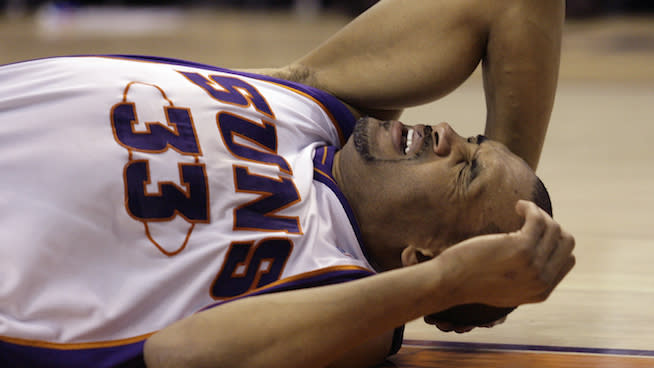Does Loss of Sleep Have Same Effects as Sports Head Injuries?

Recent research on sleep loss found the effects of not getting enough sleep, or not sleeping at all, are quite similar to (but not as harmful as) sports head injuries. According to the study, conducted by Christian Benedict, Ph.D., of Uppsala University in Sweden, not getting enough sleep results in a slight increase in two enzymes associated with brain damage: NSE (neuron-specific enolase); and S-100B (a calcium-binding protein localized to astoglial cells). These same enzymes are associated with TBI (Traumatic Brain Injury). They are the biomarkers of cell damage in the brain that could lead to cognitive problems and memory loss.
To be on top of your game as athlete, you need to efficiently process information. Lack of sleep takes a toll on the process, slowing down your game, muddling your thought patterns and lengthening the time it takes you to recover.
Toxins flow through our brains during the day, and the best way to clear them out is to get a good night's sleep. The average American sleeps anywhere from five to seven hours a night—but that's not enough, researchers say. Athletes need to sleep at least eight hours a night to help them rebuild, both physically and mentally.
Reference
Benedict, C., et. al. (2014). "Sleep Deprivation Increases Serum Levels of NSE and S-100B in Healthy Men." SLEEP, 37(1), 195-8.
This article originally appeared on STACK.com: Does Loss of Sleep Have Same Effects as Sports Head Injuries?

